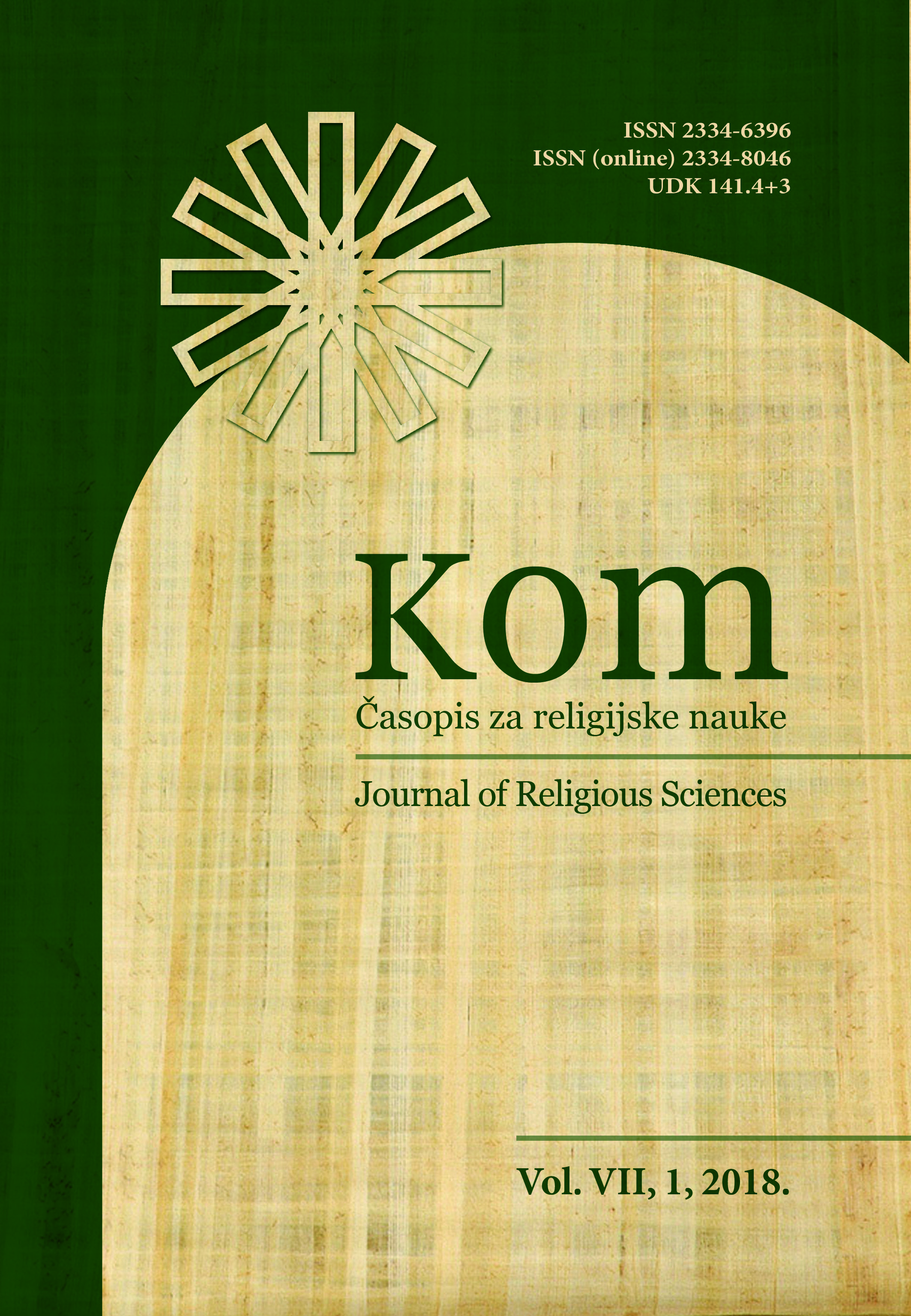Život pre rođenja u islamskoj filozofiji
Life Before Birth in Islamic Philosophy
Author(s): Tehran HalilovićSubject(s): Metaphysics, Islam studies, Middle-East Philosophy
Published by: Centar za religijske nauke "Kom"
Keywords: man; soul; eternity; worlds; knowledge; previous life; Mulla Sadra; Islamic philosohy; Kalam; descending and ascending arc;
Summary/Abstract: Concerns about eternal life are not deepened solely by the uncertainty arising from the considerations about death. The idea that a person did not exist before birth can be just as disturbing. A large number of religious traditions and philosophical ideas indicate that the human soul will experience after death a new form of life. If, despite this firm conviction, thinking about death is so frightening, even to the great number of people who believe in the eternity of the soul, the question arises as to how one experiences themselves from the period prior to the birth in their current life. A person finds the eternity existence of their soul and the continuity of their experience of their own being so valuable that their anxiety about their disappearance after death is not alleviated even by the unequivocal religious teachings of the immortality of the human soul. Unlike with life after death, opinions about life before birth differ significantly. The representatives of Islamic philosophy believe that before the creation of his body man’s soul does not exist as an individual entity. The very same sense of the need for eternal life, which arouses in man anxiety about the disappearance after death, leads him to also think about life before his own birth. A Quranic text relates how all people were witness to God’s lordship in the ontological stage before their birth, which in the Islamic traditions is called the world of the covenant. Drawing inspiration from this text and other similar contents in Islamic texts, philosophers claim that the human soul has a special ontological status before birth. The soul in that state does not belong to any body, but it possesses the ontological cognitive abilities that it carries with itself even after its creation in the form of a single individual being. In this paper we will methodically focus on the transcendental philosophy of grandiose Islamic philosopher Mulla Sadra Shirazi due to his innovative solutions through which he improved the philosophical thought in Islam, and in particular the ideas of the human soul and its origin. Mulla Sadra was thoroughly acquainted with the contributions of the representatives among the practitioners of scientific disciplines of the time, and in his works he comprehensively conveyed their opinions, which additionally enriched the results of his philosophical work.
Journal: Kom: časopis za religijske nauke
- Issue Year: VII/2018
- Issue No: 1
- Page Range: 87-106
- Page Count: 19
- Language: Serbian

